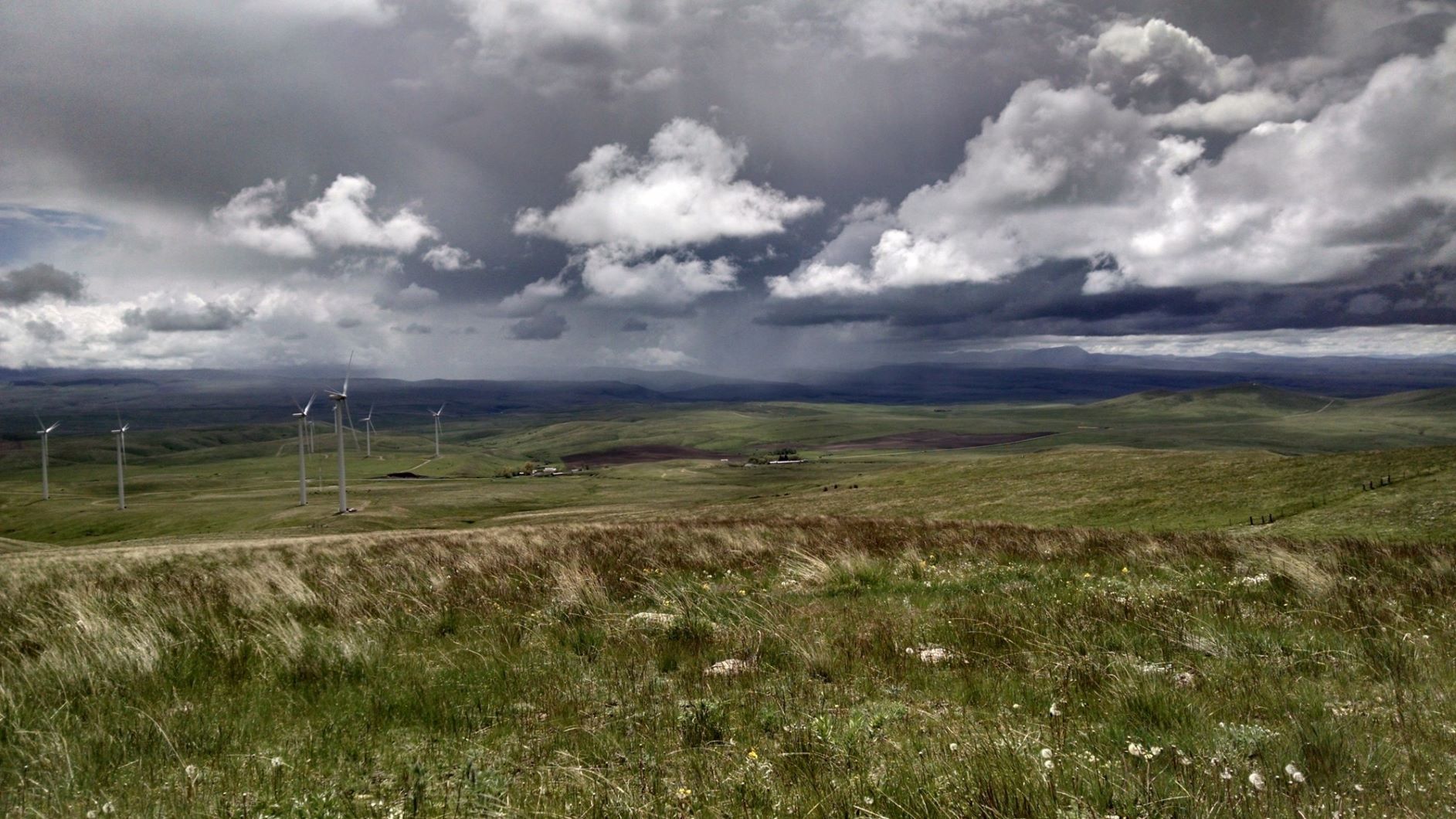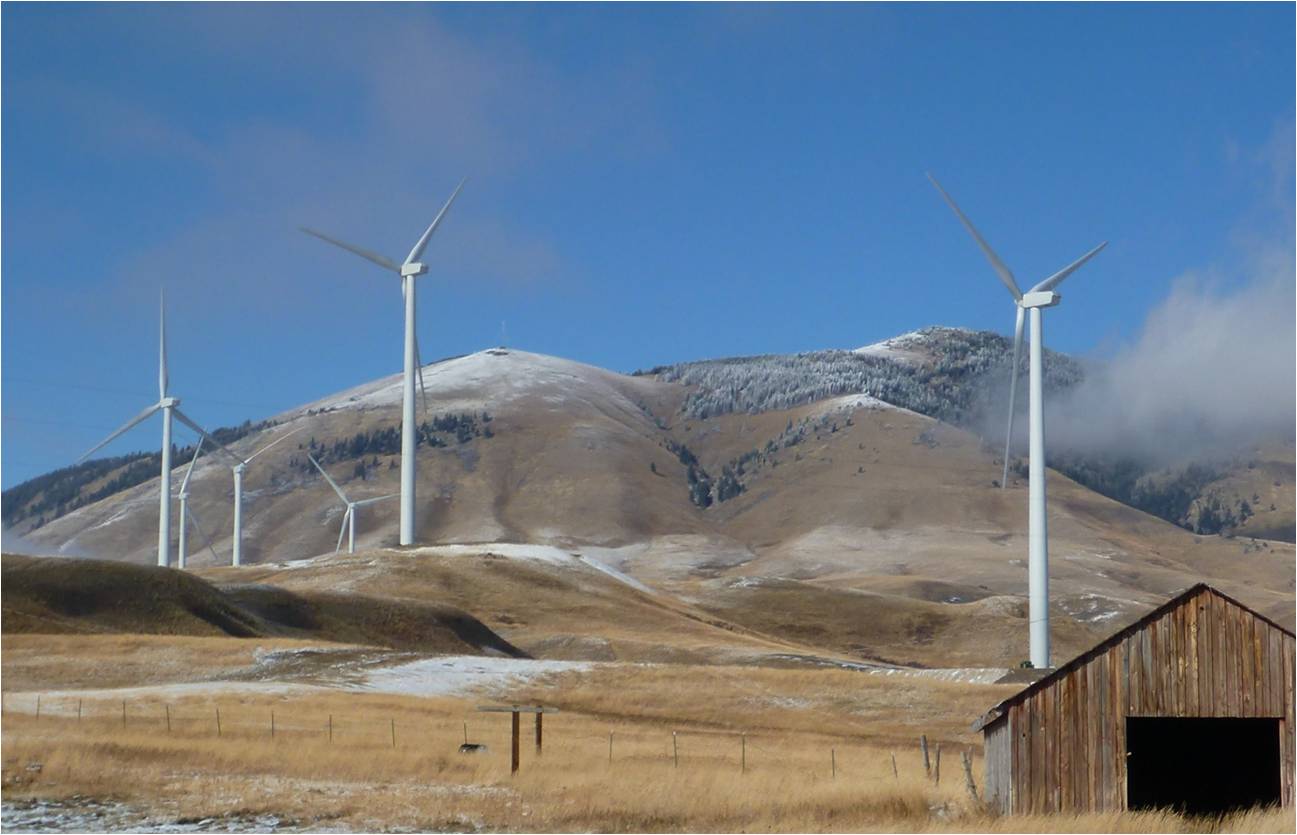There is an increasing number of wind farm proposals and projects under construction in east and central Montana. In the state, we have an abundance of wildlife resources that are critical to the high quality of life (and state revenue) for residents and visitors. Montana Fish, Wildlife, and Parks (FWP) is the state agency charged with stewarding these wildlife resources. FWP can provide data about wildlife resources that may be impacted by a wind farm and recommendations to reduce these impacts but does not have any regulatory authority over wind energy. Yet for many wind energy projects, there is overlap between desired wind project locations and the use of these areas by sensitive wildlife species such as Golden Eagles and tree-roosting bats (hoary and silver-haired bats). Given that many of the mitigation measures are voluntary, we have identified a need to increase collaboration with developers and other stakeholders (some with regulatory authority) to minimize the impacts of wind development on wildlife.
In April and May 2021, Montana Fish, Wildlife & Parks with the American Wind Wildlife Institute* hosted a virtual workshop to open dialogue among stakeholders and collaboratively develop strategies for minimizing wildlife conflict while expanding wind energy specific to Montana (view full agenda). We had almost 100 people from the wind industry, the conservation and science community, and government agencies participate in presentations and interactive sessions over 4 days. Topics during the workshop covered the state of the wind energy industry nationally, regionally, and in Montana, opportunities and challenges for wind development, the process and constraints of siting and development, permits and approvals in the state, the USFWS Wind Energy Guidelines, and state of the science on impacts and solutions for species and habitats in Montana.
Several key takeaways were identified during group discussions centering around the status of wind development in Montana. There was a sense of tension between building out renewable energy while finding ways to prioritize conservation. Other participants identified the uncertainty of the potential for future energy development given known energy transmission constraints. A recurring takeaway was the importance of developers reaching out to state agencies as early as possible in project planning. State agencies (e.g., Natural Resources and Conservation, Environmental Quality) also identified the need for increased inter-agency collaboration.
Given the focus of the workshop, much of the discussion centered around the state of wind-wildlife science. We have come a long way in understanding wind-wildlife interaction, but there are still questions in wind-wildlife science and several research gaps. FWP has developed voluntary mitigation guidelines to minimize mortality of tree-roosting bats based on our observations. We believe these measures have great potential to reduce bat mortality, but more information is needed on the effectiveness of different curtailment regimes. The impact that a wind energy project may have on wildlife species’ habitat (e.g., displacement) needs to be quantified, as well as an understanding of the cumulative impacts when multiple projects are in a similar geographic area.
Overall, we found that a theme of collaboration rose to the top of most discussions and presentations. Specifically, participants identified the need to collaborate on siting and data sharing – both between agencies and with developers – and to address research gaps. In the short term, the workshop’s planning committee will develop a ‘wind resource repository’ website for Montana. In the longer term, most participants committed to more flexible solutions, as well as data sharing and increased communication through working groups and future workshops.
All the information from the workshop, including presentations, is available at the AWWI website. The workshop was possible with support from Northwestern Energy, Montana Fish, Wildlife & Parks, and the Turner Foundation.
*AWWI is an independent non-profit organization working to solve wildlife and wind challenges through sound science and collaboration. Their participation brought scientific expertise and a strong connection to the wind industry and was key to the successful execution of the workshop.


